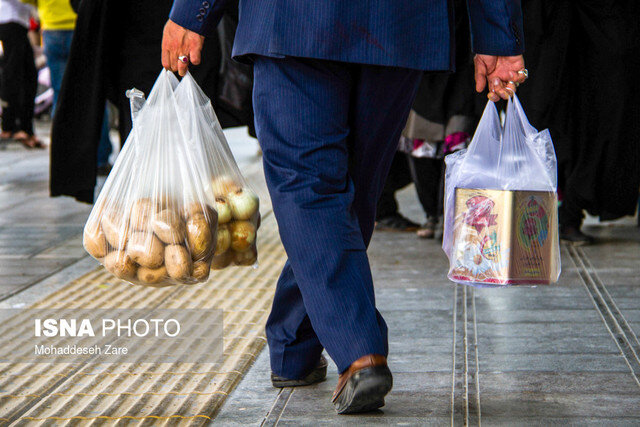Regulation to scrap 25-micron plastic bags being finalized

TEHRAN – The regulation for the removal of plastic bags with a thickness of below 25 microns has been put on the agenda and is now at the final stages of approval.
This is a very good achievement for the government, Department of Environment (DOE) chief Ali Salajeqeh, said on Thursday, ISNA reported.
According to studies, the higher the thickness of the plastic bag, the easier it is to handle waste and the more recyclable it is.
Following the Fifth session of the United Nations Environment Assembly (UNEA-5.2) took place online and in Nairobi from February 28 –March 2, the plastic removal resolution was approved.
This resolution was created from the combination of four proposed resolutions. According to this, the United Nations Environment Program (UNEP) and countries sought to develop a binding agreement and instrument regarding the reduction of plastic pollution in all forms and all places (land and sea).
Over the past year, with the cooperation of all institutions, stakeholders, and the private sector, the initial draft of this regulation was worked on in the form of eight clauses in the field of issues such as monitoring the production and consumption of plastic bags, reducing the production of plastic bags from the source and the encouragement and punishment ways was compiled.
In other words, there are taxes to prevent the use of plastic bags and incentives for the production and use of plastic bags in this regulation.
Currently, it is in the stage of interaction and reaching an understanding with the Ministry of Industry.
If this regulation is implemented, during a five-year process, factories and units producing plastic bags must change their methods for the production of renewable plastic bags. Units that produce plastic bags with a thickness of more than 25 microns include duties and taxes, and bags with a thickness of below 25 microns are removed from the production process. In stores, there should be a place to encourage people to refuse to use plastic bags.
Nature spends 500 to 900 years decomposing each plastic bag. As a result, the person who uses plastic bags also has to pay this cost.
Over 1 million tons of plastic bags produced annually
In Iran, over 1 million tons of plastic bags are produced annually, while its shelf life is less than 10 minutes, but they remain in nature for hundreds of years.
Plastic bags were first invented by Alexander Parks in 1856, and in a short time, they were able to expand their territory to the rest of the world and have many devastating effects. The world has certainly been affected, so the United Nations has designated July 11, 1974, as World Plastic Day, to be a flip for countries to reduce the production and consumption of plastic bags.
The average lifespan of each plastic bag is less than 10 minutes, while remains between 100 and 500 years in nature, statistics show that 1 million plastic bags and 5 trillion disposable plastic bags are used in the world every minute.
According to research conducted in Iran, 3,000 tons per day and over one million tons of plastic bags are produced annually, although these figures are approximate, it is very thought-provoking.
Today, one of the most important environmental problems in the country is the mismanagement of waste, which incurs a loss of 448 trillion rials (nearly $1.7 billion) annually.
Annually, more than 61 million tons of various types of waste are produced in Iran, according to the DOE, an estimated 10 to 17 percent of the total produced waste is recycled. While in developed countries this number reaches up to 70 percent.
FB/MG
Leave a Comment